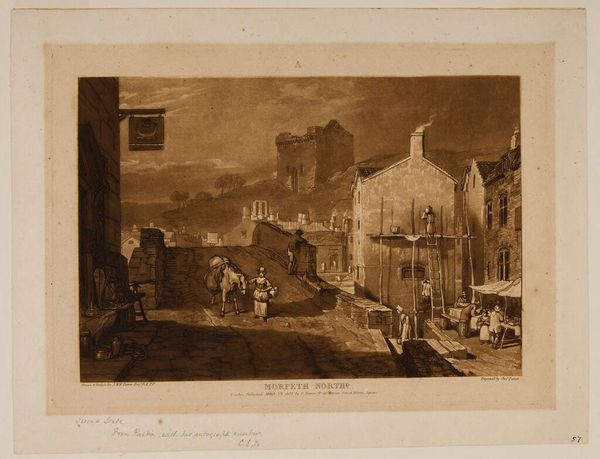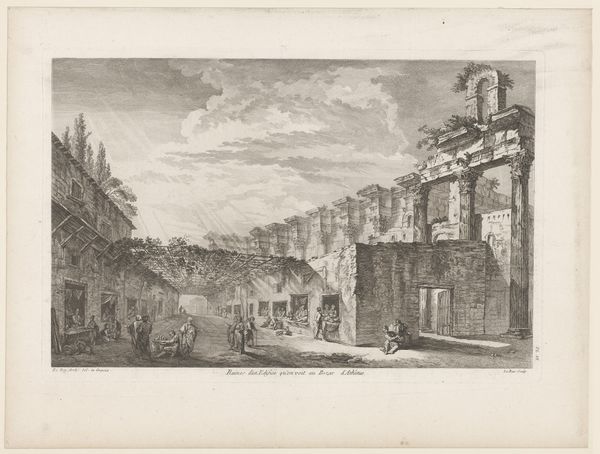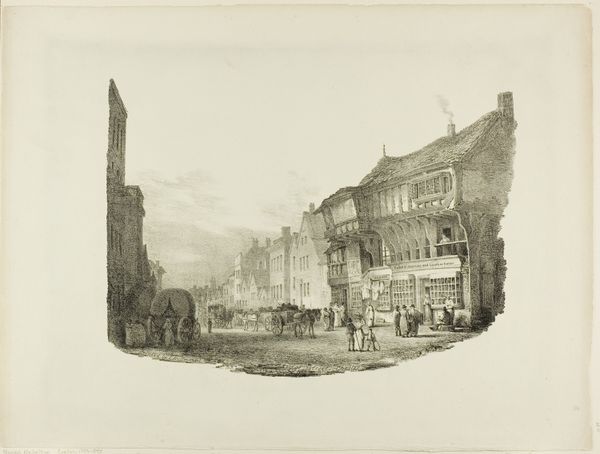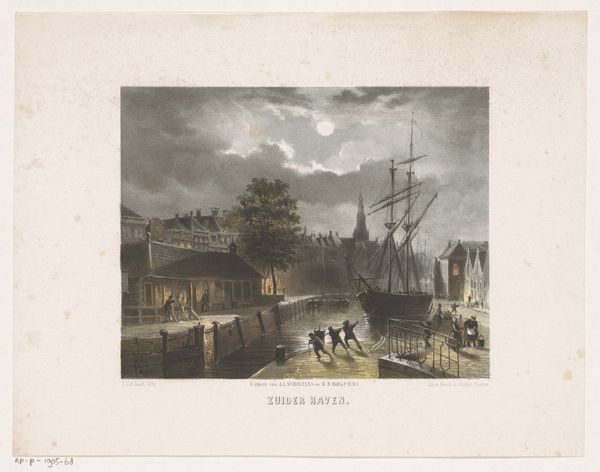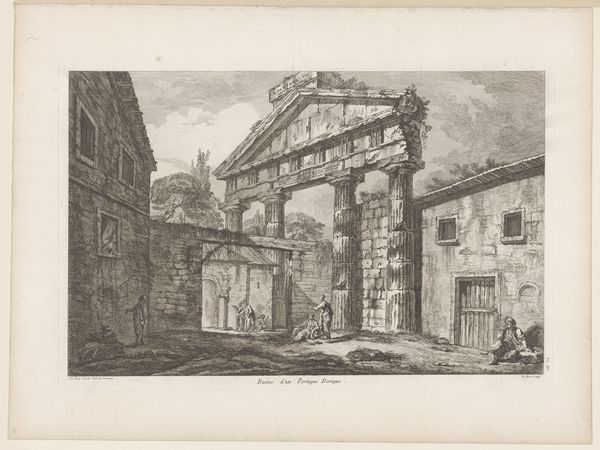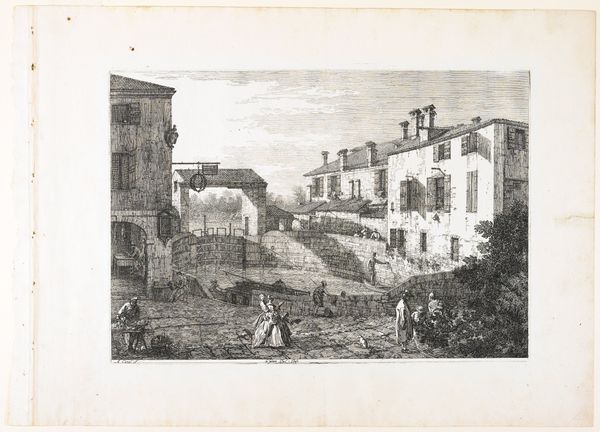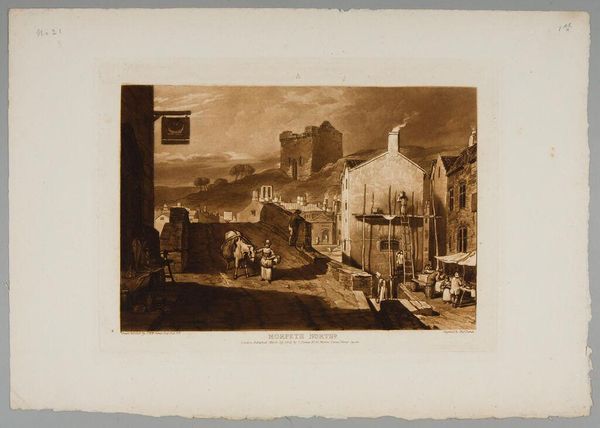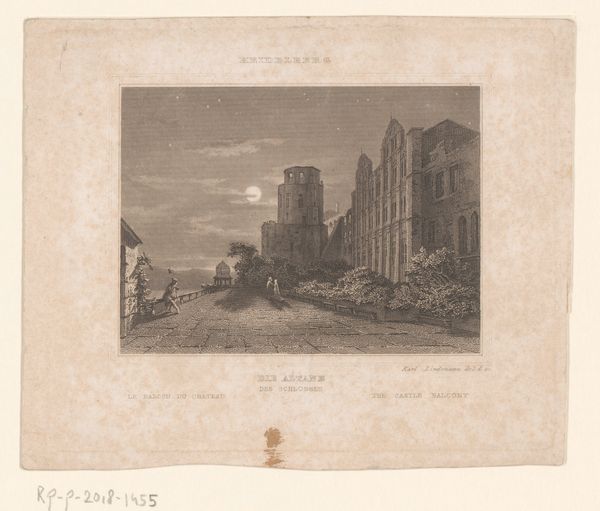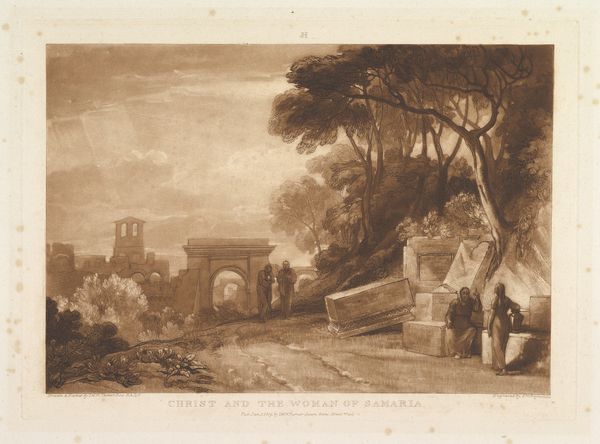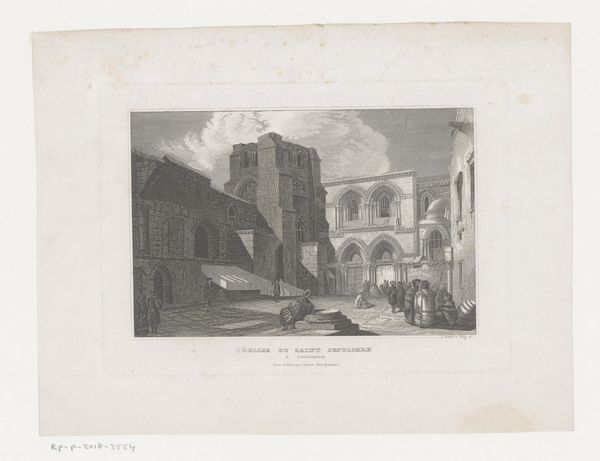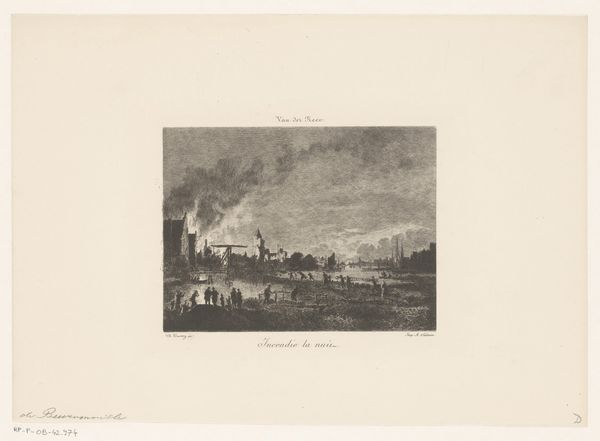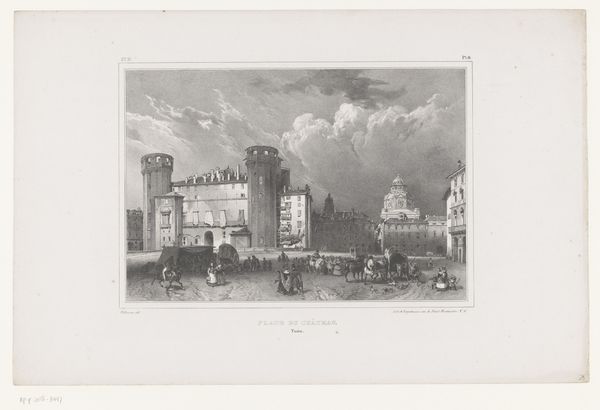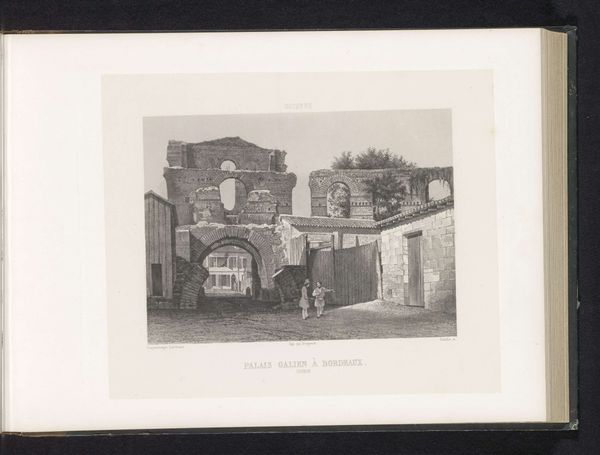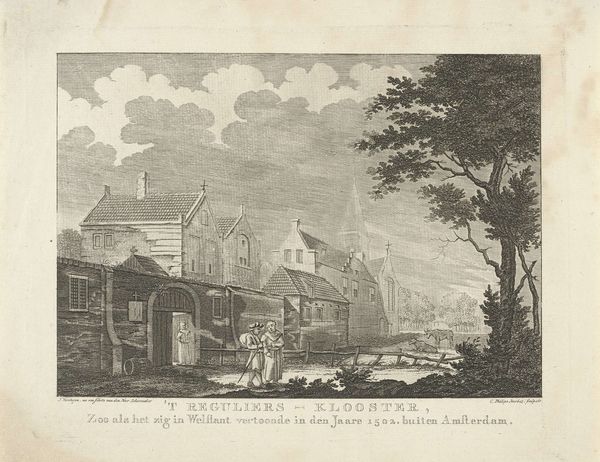
Morpeth North (Liber Studiorum, part IV, plate 21) 1809
0:00
0:00
drawing, print, etching, charcoal, architecture
#
drawing
# print
#
etching
#
landscape
#
charcoal drawing
#
romanticism
#
cityscape
#
charcoal
#
charcoal
#
architecture
Dimensions: plate: 7 x 10 1/4 in. (17.8 x 26 cm) sheet: 8 3/16 x 11 7/16 in. (20.8 x 29.1 cm)
Copyright: Public Domain
This sepia mezzotint, Morpeth North, was etched by J.M.W. Turner and engraved by Thomas Lupton, around 1811 as part of his ‘Liber Studiorum’ series. Turner’s ‘Liber’ was conceived to stake a claim for landscape as high art, rivalling history painting. The image presents a northern town dominated by its ancient castle, but brought to life by the activities of working people. The scene seems ordinary and timeless, but in the 19th century, the medieval ruin also served as a reminder of aristocratic power and a feudal past, while the contemporary town evokes the rising commercial classes. Turner was showing how landscape, like history painting, could speak to England’s evolving social and political structures. We can understand his ambitions by studying the art market and the Royal Academy, where he exhibited. Through careful historical research we might better understand the artist's aims and society's values.
Comments
No comments
Be the first to comment and join the conversation on the ultimate creative platform.
